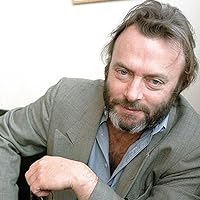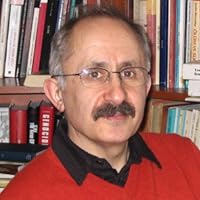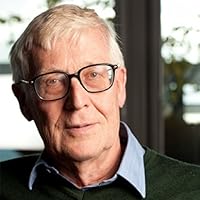Armenian Genocide Quotes
Quotes tagged as "armenian-genocide"
Showing 1-29 of 29

“On my desk is an appeal from the National Museum of American Jewish History in Philadelphia. It asks me to become a sponsor and donor of this soon-to-be-opened institution, while an accompanying leaflet has enticing photographs of Bob Dylan, Betty Friedan, Sandy Koufax, Irving Berlin, Estee Lauder, Barbra Streisand, Albert Einstein, and Isaac Bashevis Singer. There is something faintly kitsch about this, as there is in the habit of those Jewish papers that annually list Jewish prize-winners from the Nobel to the Oscars. (It is apparently true that the London Jewish Chronicle once reported the result of a footrace under the headline 'Goldstein Fifteenth.') However, I think I may send a contribution. Other small 'races' have come from unpromising and hazardous beginnings to achieve great things—no Roman would have believed that the brutish inhabitants of the British Isles could ever amount to much—and other small 'races,' too, like Gypsies and Armenians, have outlived determined attempts to eradicate and exterminate them. But there is something about the persistence, both of the Jews and their persecutors, that does seem to merit a museum of its own.”
― Hitch 22: A Memoir
― Hitch 22: A Memoir

“Being an Armenian is a merciless task and a heroic enterprise. It is a commandment, a mission, and a destiny that history has imposed on us from the depths of centuries. We are the shock troops of the struggle between light and darkness… And we are charged with an awesome responsibility. Gostan Zarian.”
― A Perfect Armenian
― A Perfect Armenian

“Never underestimate the power of good but never ignore evil lurking in the hearts of men.
Rose of Life”
―
Rose of Life”
―

“In general, those who resort to mass murder on a collective scale always put forward the justification that they acted on behalf of the nation.”
―
―

“The attempt to justify and rationalize the death of a whole nation, including women, children, the old and infirm, must itself be considered a crime against humanity.”
― A Shameful Act: The Armenian Genocide and the Question of Turkish Responsibility
― A Shameful Act: The Armenian Genocide and the Question of Turkish Responsibility

“Do not tell me that it is not God-like to get angry or go into a fit of rage. God himself when enraged will grasp a star and hurl it through the heavens. And at night, you can see bits of the star flashing through the sky, fallen apart merely by the shear force of which it was thrown. Know when He is angry and stay out of His way… And the same holds true for my grandson.” Yervant Yacoubian.”
― A Perfect Armenian
― A Perfect Armenian
“The fallout caused by denial was inherited by later generations of Armenians, linking them to the fateful days of 1915, and compelling them to set the record straight.”
― Children of Armenia: A Forgotten Genocide and the Century-long Struggle for Justice
― Children of Armenia: A Forgotten Genocide and the Century-long Struggle for Justice

“[In response to atrocities against Armenians] the British government issued a joint memo with France and Russia on 24 May 1915. The first draft, proposed by Russia, contained the phrase "crimes against Christianity and civilization," but France and Britain feared this would offend their own colonial Muslim populations and succeeded in changing the phrase to "crimes against humanity." This paved the way for the concept to assume its place after the war as one of the most important categories in international law.”
―
―

“Before the First World War, in many places military officers who had not taken part directly in operations became liable one way or another under the jurisprudence and military law of their own countries. But the question of prosecuting the political authorities--the people who ran the country--had not yet been considered. Calls during the war to hold the Ottoman political elite and the German kaiser personally responsible for the Armenian massacres and to prosecute them on those grounds heralded a turning point. From that point on, personal responsibility and prosecution--even of those in the political sphere--became one of the most important principles of international law.”
― A Shameful Act: The Armenian Genocide and the Question of Turkish Responsibility
― A Shameful Act: The Armenian Genocide and the Question of Turkish Responsibility

“Not coincidentally, another who noted their extermination was Hitler, who had a first-hand witness of it among his closest associates in Munich. The former German consul in Erzerum, Max von Scheubner-Richter, reported to his superiors in detail on the ways they were wiped out. A virulent racist, who became manager of the early Nazi Kampfbund and the party’s key liaison with big business, aristocracy and the church, he fell to a shot while holding hands with Hitler in the Beerhall putsch of 1923. ‘Had the bullet which killed Scheubner-Richter been a foot to the right, history would have taken a different course,’ Ian Kershaw remarks. Hitler mourned him as ‘irreplaceable’. Invading Poland 16 years later, he would famously ask his commanders, referring to the Poles, but with obvious implications for the Jews: ‘Who now remembers the Armenians?’ The Third Reich did not need the Turkish precedent for its own genocides. But that Hitler was well aware of it, and cited its success to encourage German operations, is beyond question. Whoever has doubted the comparability of the two, it was not the Nazis themselves.”
―
―

“If we compare the 2014-genocide to the Armenian genocide and the Anfal genocide, we will find that, whether religious or secular, the perpetrators of the three genocides have used a specific religion to legalize their crimes. Not even children were spared.”
―
―

“Not even children were spared. To see history repeating itself, and the calamities of the past unfolding again, spelled out in the eyes of the victims and survivors, was unbearable. To witness rape and slavery practiced and legitimized, to witness it happen in the 21st century was hideous. Girls as young as 8-9 years old and women all ages were being brutally violated and sold, sometimes for $10. My heart sank with their screams, and we had to do something to help them.”
―
―

“Gökalp gave "the nation" an important mystical component. In his work, "he transferred to the nation the divine qualities he had found in society, replacing the belief in God with the belief in nation: and so nationalism became a religion." The national is deified, thus expanding Durkheim's idea that "society can do as it pleases." So, if a nation perceives itself in danger, it feels no moral responsibility in its response to that danger. The Unionist "scientific approach" gained a "sacred" character through Gökalp's theories.”
―
―

“In a report dated 20 February 1894, French ambassador Paul Cambon describes a high-ranking Turkish official telling him that "the Armenian question does not exist, but we shall create it.”
―
―

“No actions by gangs or individuals can justify the deaths of eight hundred thousand people.”
― A Shameful Act: The Armenian Genocide and the Question of Turkish Responsibility
― A Shameful Act: The Armenian Genocide and the Question of Turkish Responsibility

“Since 1945 Turkey has, of course, acquired far more importance for the US as a strategic ally, first in the Cold War and now the War on Terror. In the last twenty years, increasing pressure from the Armenian community, today much more salient than in the 1920s, and the emergence of an Armenian scholarship that has pioneered modern study of the exterminations of 1915-16 in the West, have made repression of the question more difficult. After previously unsuccessful attempts to get resolutions on it through Congress, in 2000 the House International Relations Committee voted for a bipartisan resolution condemning the Armenian genocide, while carefully exempting the Turkish Republic from any responsibility for it. Ankara’s response was to threaten withdrawal of American military facilities in Turkey, trade reprisals, and to talk of a risk of violence against Americans in Turkey – the State Department even had to issue a travel advisory – if the resolution were passed by Congress. Characteristically, Clinton intervened in person to prevent the resolution getting to the floor. In Ankara, Ecevit exulted that it was a demonstration of Turkish power.”
―
―

“Geçmişin acı gerçekleriyle yüzleşmeden, hesaplaşmadan geleceğe nasıl ilerleyeceğiz ki?”
― 1915: Ermeni Soykırımı
― 1915: Ermeni Soykırımı

“In his memoirs, Celal Bey recalled what it felt like to witness what were, in effect, death marches. “I was like a person sitting beside a river,” he wrote, but “with no means of rescuing anyone from it”:
Instead of water, blood was flowing down the river. Thousands of innocent children, blameless old men, helpless women and strong youngsters were streaming downriver towards oblivion, straight to dust and ashes. Anyone I could hold onto with my bare hands, with my fingernails, I saved. The rest, I believe, went down the river, never to return.”
― The Thirty-Year Genocide: Turkey’s Destruction of Its Christian Minorities, 1894–1924
Instead of water, blood was flowing down the river. Thousands of innocent children, blameless old men, helpless women and strong youngsters were streaming downriver towards oblivion, straight to dust and ashes. Anyone I could hold onto with my bare hands, with my fingernails, I saved. The rest, I believe, went down the river, never to return.”
― The Thirty-Year Genocide: Turkey’s Destruction of Its Christian Minorities, 1894–1924

“«Օրենքը պարզապես վերացնելով հարցը չի փակվի… Այդ օրենքը դանակ է, կացին, որը պատասխանատու է բազմաթիվ հանցագործությունների համար։ Եկեք չփորձենք շտկել այդ հանցագործությունները՝ սոսկ դանակը բթացնելով… Դրա պատճառով շատ անմեղների արյուն է թափվել… Անհնար է որոշել այրված կամ ոչնչացած տների թիվը։ Այդ երեքտողանոց օրենքը սարսափելի բան է։ Մենք պետք է վերափոխենք դրա ձևն ու բովանդակությունը… Սակայն այն վերացնելով՝ մենք պետք է նաև շարժվենք դեպի պատիժն առանց բացառության բոլոր նրանց համար, ովքեր, հիմնվելով այդ օրենքի վրա, կործանեցին երկիրը. նրանք, ովքեր սպանությունն գործելու համար օգտագործեցին ու չարաշահեցին այդ օրենքը, պետք է պատժվեն։ Հարցը զենքերը վայր դնելով չի փակվում»։
— Արթին Բոշգեզենյան, Օսմանյան կայսրության խորհրդարանի հայազգի պատգամավոր”
― A Shameful Act: The Armenian Genocide and the Question of Turkish Responsibility
— Արթին Բոշգեզենյան, Օսմանյան կայսրության խորհրդարանի հայազգի պատգամավոր”
― A Shameful Act: The Armenian Genocide and the Question of Turkish Responsibility

“Since there was no picture of the old country in our house and since I didn't have one etched in my mind, the old country came to mean my grandmother. Whatever it was, she was. Whatever she was, it was.”
― Black Dog of Fate: An American Son Uncovers His Armenian Past
― Black Dog of Fate: An American Son Uncovers His Armenian Past

“The old country. That phrase came up now and then. A phrase that seemed to have a lock on it. I knew it meant Armenia, but it made me uneasy. If I asked about the old country, the adults would change the subject. Once my mother said, ‘It’s an ancient place, it’s not really around anymore.’ Where had it gone? I asked myself.”
― Black Dog of Fate: An American Son Uncovers His Armenian Past
― Black Dog of Fate: An American Son Uncovers His Armenian Past

“I realized that in order to touch the woman behind the grandmother I knew, the one who never spoke in a direct way about her past, I had to bring the pain of the past into the landscape of the present.”
― Black Dog of Fate: An American Son Uncovers His Armenian Past
― Black Dog of Fate: An American Son Uncovers His Armenian Past

“What did it mean for a whole civilization to be expunged from the earth? What did it mean when a people who loved and worked and built a culture on the land where they had lived for three thousand years were destroyed? What did it mean for the human race?”
― Black Dog of Fate: An American Son Uncovers His Armenian Past
― Black Dog of Fate: An American Son Uncovers His Armenian Past

“When a civilization is erased, there is a new darkness on the earth. I could feel dust blowing over dry land, where now blood is part of the rocks, where the water will never run clean again.”
― Black Dog of Fate: An American Son Uncovers His Armenian Past
― Black Dog of Fate: An American Son Uncovers His Armenian Past

“I had been privy to some of her intense sensory images, to her telescopic memory, to Genocide flashbacks. This was how she told me about her past. I think it was the only way she knew to speak to me about something she wanted to say, but couldn't say in any other language to a young boy, her eldest grandson.”
― Black Dog of Fate: An American Son Uncovers His Armenian Past
― Black Dog of Fate: An American Son Uncovers His Armenian Past

“Had I been a witness to a memory of hers so terrible that it could only be said to me, an eleven-year-old, half delirious with fever, lying in bed between darkness and light? My grandmother had spoken so emphatically that day, in clipped, deliberate speech, as if to say, 'This is a moment to listen.”
― Black Dog of Fate: An American Son Uncovers His Armenian Past
― Black Dog of Fate: An American Son Uncovers His Armenian Past
“Si la vida de la diáspora armenia nació de la muerte, mientras la muerte siga viva quizás la diáspora armenia seguirá unida… mas, ¿qué pasará cuando ese pasado-presente oscuro sea reconocido?, ¿qué o quién mantendrá unida la diáspora?”
― Con un perdón me basta: Genocidio armenio. Un siglo de silencio
― Con un perdón me basta: Genocidio armenio. Un siglo de silencio
“Con todo mi apego a la palabra dada, te digo a ti Turquía que mi mano se encuentra extendida para aceptar tu perdón.”
― Con un perdón me basta: Genocidio armenio. Un siglo de silencio
― Con un perdón me basta: Genocidio armenio. Un siglo de silencio
All Quotes
|
My Quotes
|
Add A Quote
Browse By Tag
- Love Quotes 97.5k
- Life Quotes 76k
- Inspirational Quotes 73k
- Humor Quotes 44k
- Philosophy Quotes 29.5k
- Inspirational Quotes Quotes 27k
- God Quotes 26k
- Truth Quotes 23.5k
- Wisdom Quotes 23.5k
- Romance Quotes 23k
- Poetry Quotes 22k
- Death Quotes 20k
- Happiness Quotes 18.5k
- Life Lessons Quotes 18.5k
- Hope Quotes 18k
- Faith Quotes 18k
- Quotes Quotes 16.5k
- Inspiration Quotes 16.5k
- Spirituality Quotes 15k
- Religion Quotes 15k
- Motivational Quotes 15k
- Writing Quotes 15k
- Relationships Quotes 14.5k
- Life Quotes Quotes 14k
- Love Quotes Quotes 14k
- Success Quotes 13.5k
- Time Quotes 12.5k
- Motivation Quotes 12k
- Science Quotes 11.5k
- Motivational Quotes Quotes 11.5k


